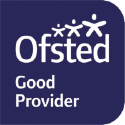E-safety for Parents
The Parents and Carers' Guide to the Internet and Safer Internet Day
Each year there is a day dedicated to being safe on the internet. Visit saferinternet.org.uk to find the latest tips and resources to help children and young people stay safe online.
E-Safety for Parents
The Child Exploitation and Online Protection Centre have distributed guidance on how to protect your child online. Please see the information below.
The online world is integral to how children stay in touch with their friends, and access to the internet is now available like never before. However, there are inherent risks associated with new technologies, and it is essential for young people and their parents/carers to understand how to reduce these risks.
The Child Exploitation and Online Protection (CEOP) Centre is the UK's national child protection agency. CEOP believe the start of the new school year is the perfect time to speak to your child about how they use the internet and how they can stay safe online.
Through the ClickCEOP advice and help centre, members of the public can access guidance on a broad range of topics to help protect their children or report a concern directly to CEOP.
CEOP's Children and Young People's programme, 'Thinkuknow', is used in schools nationwide to educate young people about staying safe online. As parents, you can play a fundamental role in this aspect of their education. To stay up to date with further information and advice, please visit thinkuknow.co.uk/parents to find information on:
- What are the risks posed to your child online?
- What can you do to protect your child?
- Where can you go if you are concerned?
Accessing the CEOP app
CEOP has been working with social networking sites and other major providers to put internet safety advice at the fingertips of your child through the ClickCEOP application.
Facebook users
If you have access to Facebook, you can add the 'ClickCEOP' app to yours and your child's Facebook profile by visiting facebook.com/clickceop and adding the 'ClickCEOP' app to your profile.
The app is free and easy to use and gives you immediate access to internet safety advice. It also allows you to report any suspicions to CEOP direct. If you become a 'friend' of the page, CEOP will invite you to free online safety surgeries and send you updates. By clicking on 'Add the App' on the left hand side of the Facebook page, you can add the 'ClickCEOP' button to your profile.
Web Browsers
If you use Firefox, Internet Explorer 8 or Google Chrome, you can customise your browser, enabling users to see the ClickCEOP button, regardless of which website you're on.
By following the guidance above, you can help protect your child and allow them to enjoy using the internet safely. More information is available via the links below.
- Thinkuknow provides advice from the National Crime Agency (NCA) on staying safe online
- Parent Info is a collaboration between Parentzone and the NCA providing support and guidance for parents from leading experts and organisations
- Childnet offers a toolkit to support parents and carers of children of any age to start discussions about their online life, to set boundaries around online behaviour and technology use, and to find out where to get more help and support
- Internet Matters provide age-specific online safety checklists, guides on how to set parental controls on a range of devices, and a host of practical tips to help children get the most out of their digital world
- London Grid for Learning has support for parents and carers to keep their children safe online, including tips to keep primary aged children safe online
- Net-aware has support for parents and carers from the NSPCC, including a guide to social networks, apps and games
- Let's Talk About It has advice for parents and carers to keep children safe from online radicalisation
- UK Safer Internet Centre has tips, advice, guides and other resources to help keep children safe online, including parental controls offered by home internet providers and safety tools on social networks and other online services


